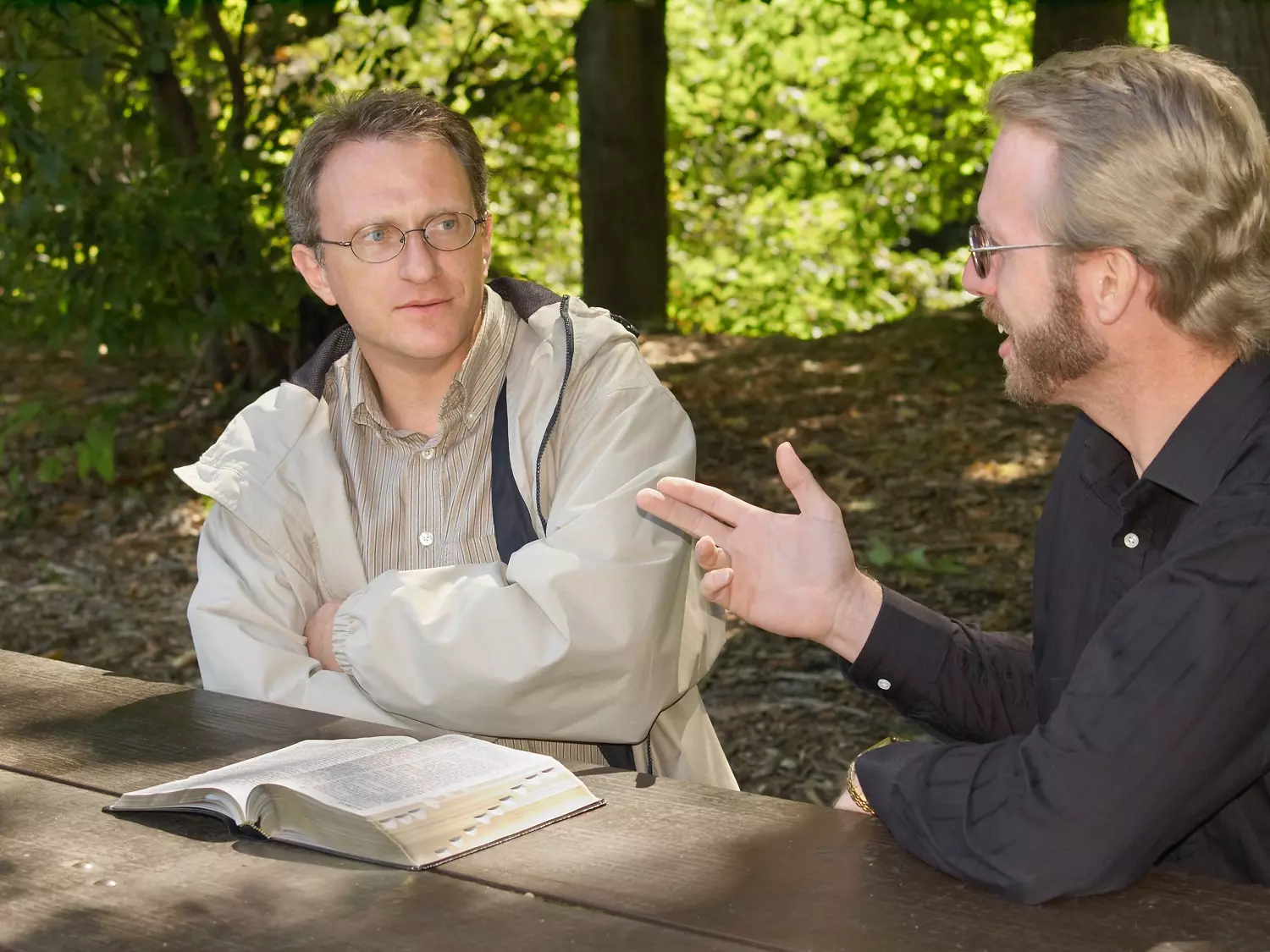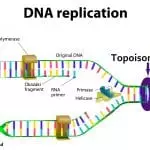[Originally published as Coming to Grips with History: A Response to Luke Nix and Cross Examined Part 3. A rebuttal of an Old Earth Creationist disagreeing with the documentary Is Genesis History “YAC” equals Young Age Creation.]
Philosophy of Science
Nix takes issue with the young age creationist’s alleged view on how the past is to be understood, as well as alleged views on the laws of physics. Let’s consider these in turn:
First, Nix argues:
It is quite common for young-earth creationists to claim that the past cannot be known with any level of certainty like the present can be. According to “Is Genesis History” present processes cannot be used to figure out what happened in the past. If they affirm Jeremiah 33:25-26, then they affirm that the laws of physics are as unchanging as God is. This is important because the past can be known by observing the present and using this “principle of uniformity” (not uniformitarianism–they are different), we can deductively conclude what has happened in the past. By working our way backward in time, using God’s actions (current observations) and God’s words (Jeremiah 33:25-26), we discover that the universe did not reach its point of creation 6000 or even 10,000 years ago. Rather it goes all the way back to roughly 13.8 billion years ago.
Once again, Nix fails to provide any evidence that the movie maintains what he’s claiming it does. Because I know the movie (and its contributors) well, I am highly suspect.
The first sentence may be true of fringe young age creationist groups, but no informed creationist (including those in IGH) are arguing this. To be fair, I think I know what Nix means, so I’ll give him the benefit of the doubt.
Let me explain:
Many young age creationists make the distinction between observational and historical science. Norm Geisler (whom Nix references) takes this further and delineates between historical science, origin science, and observational science. Ironically, it would appear that such a distinction was first made by evolutionists, much to the malaise of many internet atheists. See here for more on this.
Contrary to Nix’s claim, the YAC view is not that “the past cannot be known with any level of certainty like the present can be.” Rather, it is that the past is investigated by a different kind of science—something Nix’s own source agrees with!6
Further, the YAC view is actually that the past can be known with extreme certainty because we believe God’s Word reveals true information about history! Our contention is that science has limited access. The reason is that historical science often deals with phenomena that cannot be observed (since it is usually not repeatable), and is therefore subject to philosophical assumptions about the past which may or may not align with the history found in the Bible. As you can hopefully see, this is a much more nuanced claim.
His next sentence is accurate but requires qualification. I expand on this here and here, but briefly, I argue that background information is required in order to know what kind of philosophical assumptions about the past are warranted. The IGH film argues that, contrary to uniformitarianism (the present is the key to the past), the biblicist should hold to a sort of catastrophism (the past is the key to the present).
In the article and podcast that I linked to, I argue that the biblical background information gives us the philosophical firepower necessary to reject uniformitarianism since the Bible seems to describe a global flood which precludes a billions-of-years-old Earth. I urge that, if you’ve read this far, you take the additional time to ingest those resources as they’ll provide much clarity on the young age position on this point.
Almost prophetically, Nix provides a biblical counterargument and suggests that any Christian who affirms the truthfulness of Jeremiah 33:25-26 must also affirm the unchanging laws of physics (which would legitimize, in Nix’s estimation, our ability to gain accurate knowledge of the past through science).
This is yet another popular argument of Ross’s that I’ve so recently discussed in-depth that I must simply direct you to another resource before this blog post becomes a book! Here, I argue that Ross et al. fail to consider when Jeremiah 33:25-26 initially takes effect, which I contend is only after the Noachian deluge.
Nix continues along this theme about the changing laws of physics, and the problems such a suggestion might entail. There are many creationists who do not maintain that the laws of physics have changed. Others feel that there may have been slight adjustments during the flood year.
I fear that Nix’s concern for the knowability of the past (scientifically) is clouding his ability to rely on what the Bible says about it. In other words, Nix fears that by even suggesting that something may have been different about the laws of physics, it opens the uncomfortable door that there will be questions of history that science cannot answer.7
If this is the case, then it fails to understand that “science” by his definition is really just science with unnecessary assumptions (like uniformitarianism) smuggled in. Contrary to Nix’s bifurcation, “the principle of uniformity” does not require that the laws of physics have been unchanging since the inception of the universe. God does not tell us what the laws of physics were prior to the flood year (again, see here), but we have good evidence (such as rocks that date “old” using one method but “young” using another) that something unusual was going on.
Whether this unusual something was an acceleration of decay that required a slight change in the laws of physics, or one that did not, the biblical and observable evidence suggests that it happened.
Theological Issues
To get us started in this section, Nix takes issue with the alleged contention of IGH that “nature cannot interpret Scripture”:
This issue can also be seen as both philosophical and theological. When it is restated, the theological implications become more apparent: “God’s actions cannot be used to interpret God’s words.” This is the result of denying Jeremiah 33:25-26 (affirming changed laws of physics). For changed laws of physics means that the creation does not reflect God’s actions. However, since God has told us that the current observations of the universe do reflect His original creation (Jeremiah 33:25-26, Psalm 19, and Romans 1), we cannot deny that God’s actions can be used to interpret His words. Affirming that God’s actions (the creation) can be used to interpret God’s words (Scripture) is not a matter of “man’s fallible ideas versus God’s infallible Word,” rather it is a matter of affirming that God’s infallible actions are necessarily consistent with God infallible Word. And when God’s actions unequivocally reveal an ancient universe, we need to change our interpretation of what God’s Word in Genesis means to reflect His actions and not our fallible ideas.
There are numerous assumptions and misunderstandings (hereafter, Issue(s)) displayed by the above quotation:
-
A lack of clarity with respect to the project of hermeneutics
-
An assumption of strict concordism
-
A conflation of the terms “observation” and “interpretation”
-
A misunderstanding of the nature of evidence, science, and general revelation
-
A fundamental misunderstanding of how science affects our understanding of ancient texts
This is a lot of ground to cover; so while I must apologize in advance for my lack of brevity, many of these points lie at the heart of the origins debate, and thus, I would be remiss not to give them fair treatment.
However, since each of these Issues are semi-related, hopefully, each Issue will require less and less qualification and explanation.
A lack of clarity with respect to the project of hermeneutics
Let’s get clear on what textual hermeneutics8 attempts to do, first of all. Nix provides a restatement of the problem he’s raised: “God’s actions cannot be used to interpret God’s words.”
It’s very strange to me that Nix has stated the problem in this way. He is a philosophically and theologically astute individual but seems to think that God’s actions and God’s words are on an epistemologically level playing field. I can see how this might seem true prima facie, but it’s not so simple:
One must take into account that words consist of propositional statements. Actions [Nix’s caricature of “creation”], on the other hand, must first be interpreted according to any number of assumptions before being written into propositional statements.
Even though one “interprets” both the Bible and nature, the process for each looks much different. Hopefully, you understand that reading words on paper is not the same thing as studying nature or performing chemical experiments in a laboratory.
Lisle is, once again, helpful:
To “interpret” Scripture means to understand the meaning of the propositions. But is this what we mean when we speak of “interpreting” nature? No. Nature is not comprised of propositions. When scientists “interpret” nature, they are creating (not interpreting) propositional statements that they believe to be true. For example, “This rock has a high concentration of iron; it is probably a meteorite.” These propositions must then be interpreted (in the linguistic sense) by the reader/listener in order to understand the meaning. So, to understand the claims of a scientist involves two levels of interpretation: we must interpret his claim (linguistically), which is itself an interpretation (a propositional hypothesis) of nature. But to understand the propositions of Scripture involves only one interpretation (linguistic) of inerrant propositions.
Thus, the error is reduced to a probability function, but with the added benefit that we are beginning with an inerrant text (assuming the interpreter holds to inerrancy).
Additionally, Nix’s paragraph merely assumes that God’s actions reveal an old universe. To the contrary, there are scores of chronometers which indicate a young age for the earth and universe. So even if I were inclined to agree with Nix’s hermeneutic, it still wouldn’t follow that we must only use those chronometers which seem to suggest an old age.9
So much more could be said here, but hopefully, more is not necessary to understand the massive difference between interpreting Scripture and interpreting nature (again, “God’s actions” per Nix).
An assumption of strict concordism
After citing Jeremiah 33 (reflected upon above), Nix writes, “For changed laws of physics means that the creation does not reflect God’s actions.”
First, this is a non-sequitur. It’s not clear at all to me that, if the laws of physics have not necessarily been constant since the first moment of time, creation can be said not to reflect the actions of God.10
Further, Nix’s statement about the laws of physics requires the assumption that a view known as “concordism” is true. Concordism is the view that certain statements in Scripture will correlate exactly with the claims of modern science when both are understood correctly.
Historically, both OEC’s and YAC’s have affirmed this view.
To be sure, I’m not so convinced the terms “concordism” and “non-concordism” are adequately defined, and I still have much thinking of my own to do in this area. Thus, I tend to err on the conservative side when it comes to difficult passages—especially those which are found in non-historical writings (i.e., poetry, prophecy, etc).
Can Jeremiah 33:25-26 really be referring to the laws of physics? The original audience would not have understood it in those terms, certainly. It seems to me that we could draw a vague notion of the orderliness of the universe from this passage—but not much more.
As for my own current thinking on this, I’m inclined to think that the biblical authors (under the inspiration of the Holy Spirit) used vague, minimalistic descriptors when commenting on matters that God knew we’d understand much differently today vs. the alleged understanding of the ancients.
For example, does the Bible teach an ancient cosmology or a modern cosmology? Although I could never fit it within this article, I could just as easily make the case for reading an ancient cosmology into the Bible as I could for reading a modern one.
My approach then? To read no cosmology into the Bible.
I want to stress that correct interpretation (exegesis) requires that we not read outside ideas into the Bible, whether they be modern or ancient. While one group wants to teach that Genesis 1:1 describes the big bang, another group entirely wants to assert that the Bible teaches that the earth is a flat disk.11 Then, there are those who claim the Bible teaches neither!
All three views have support from well-educated, reputable Hebrew and Old Testament scholars.
The point I’m making is this: Our knowledge of how Scriptures such as Jeremiah 33:25-26 should be interpreted is not complete enough to warrant the claim Nix has made (that an understanding of this verse other than his necessitates that creation doesn’t reflect God’s actions).
A conflation of the terms “observation” and “interpretation”
Nix claims: “…since God has told us that the current observations of the universe do reflect His original creation (Jeremiah 33:25-26, Psalm 19, and Romans 1), we cannot deny that God’s actions can be used to interpret His words.”
Allow me to restate my Issue this way: Nix has conflated “general revelation” with “modern science.”
We could write an entire book on this point alone. Instead, I’ll ask a rhetorical question: Was his statement true prior to the 16th century, when the vast majority of thinkers’ “current observations” were nothing like they are today?
Here again, we see that Nix’s proof texts (Jeremiah 33:25-26, Psalm 19, and Romans 1) give sufficient enough (i.e., vague, minimalistic) information that is applicable to Bible readers of all (historical) ages, while not endorsing a particular cosmology. Otherwise, the “author’s intended meaning” would necessarily change with each new iteration of cosmological consensus!
Thus, from these verses, we have license to conclude that we live in an orderly universe that testifies to the handiwork of God—and nothing more.
[To be continued, or go to the original article]
Footnotes
6. On a semi-related note, Ross often claims that Astronomy—his field of specialization—is unique because it is the only branch of science that directly observes the past. Hopefully, any philosophically astute individual recognizes that such an assertion depends on unargued assumptions (particularly big bang assumptions). We observe the expansion of space, but it does not follow from the expansion of space that we observe the past (i.e., that the big bang is true). That requires assumptions that go beyond observation.
7. Here I am thinking of something like “Last Thursdayism,” which contends that the past is unknowable. I suspect something like this is what Nix has in mind.
8. According to Google Dictionary: “the branch of knowledge that deals with interpretation, especially of the Bible or literary texts.”
9. See here for an example of how what is commonly used as an old age indicator may only be one side of the coin. Similar examples could be given in every field of science.







